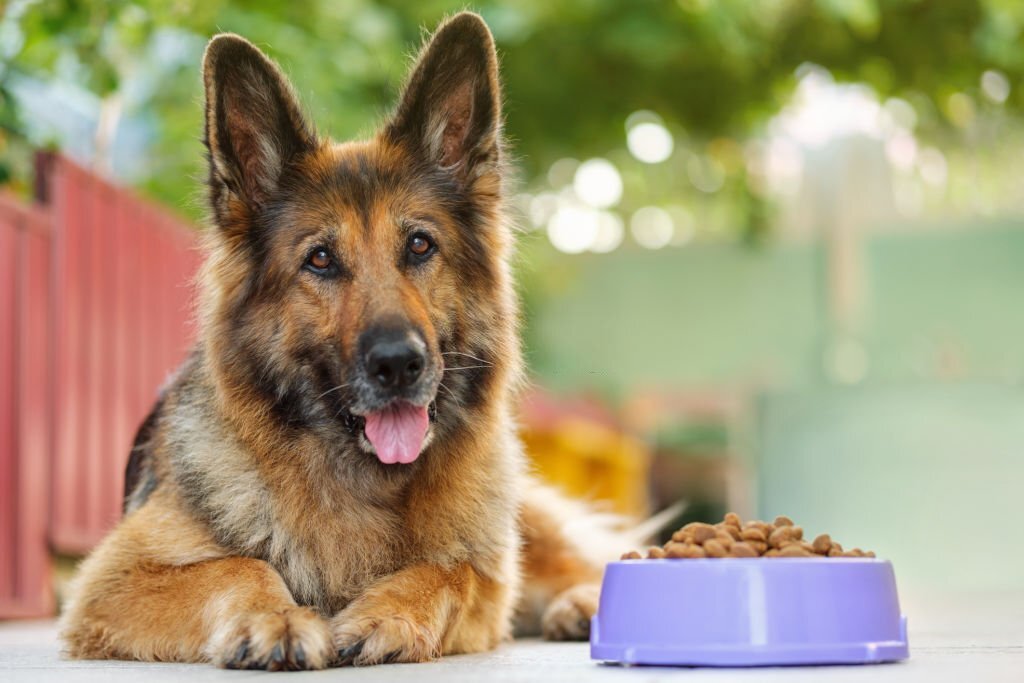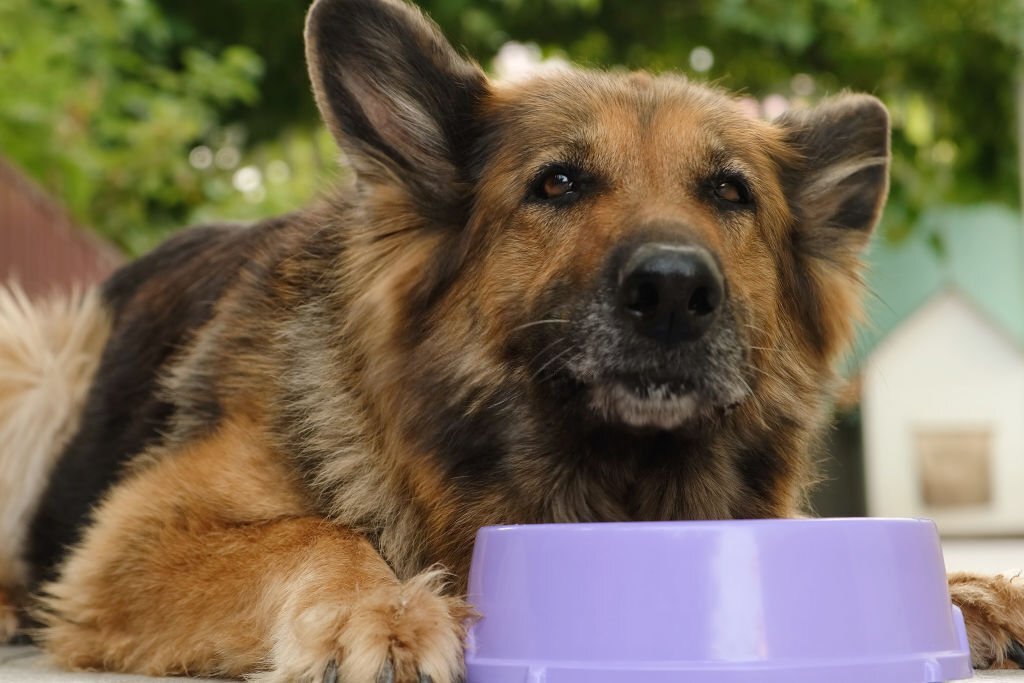When it comes to protection dogs, performance is paramount. One key aspect that can influence your protection dog’s performance is its diet. Just as a high-performance car runs best on quality fuel, your canine guardian’s energy, agility, and alertness are directly tied to the nutrition they receive.
Dive deep with us as we explore the impact of diet on your protection dog’s performance, and discover how the right nutrients can elevate your loyal protector to unparalleled heights.

Understanding the Role of Nutrition for Protection Dogs
Protection dogs are unlike any other type of pet; they are highly-trained and skilled protectors, bred for their strength, intelligence, and loyalty. The specialized training and rigorous demands placed on them require proper nutrition to ensure optimal performance and health.
Here’s an in-depth look at how a well-balanced diet is vital for various aspects of a protection dog’s life:
- Energy & Stamina: A protection dog’s readiness hinges on their energy levels. With the demands of sudden bursts of activity, a blend of high-quality proteins and fats is necessary. These provide muscle-building blocks and sustained energy, respectively. Incorporating complex carbs ensures prolonged alertness and endurance.
- Muscle Development: The essence of a protection dog’s physical prowess lies in robust muscles, enabling swift actions like sprinting and jumping. High-quality proteins, broken down into amino acids, are fundamental for muscle repair and growth.
- Mental Acuity: A dog’s swift decision-making is as vital as physical strength. Omega-3 fatty acids, found notably in fish oils and flaxseed, boost cognitive functions. Concurrently, B vitamins from meats and grains ensure optimal nerve and brain health.
- Health & Longevity: Every owner aspires for their dog’s longevity and wellness. Balanced nutrition fortifies the immune system, promotes radiant skin, counters obesity risks, and aids digestion. Antioxidants and essential minerals further ensure holistic health, setting the stage for years of dedicated service.
Key Dietary Components for Optimal Performance of Protection Dogs
To ensure that your protection dog acts at peak performance, it’s imperative to understand the role each dietary component plays in their health and well-being. Here’s a more detailed look at the key elements:
1. Proteins
Proteins are often referred to as the building blocks of the body. They play a vital role in muscle development and repair, enzyme formation, and hormone balance. Lean meats such as chicken, beef, and fish are excellent sources of high-quality protein. Eggs and certain dairy products can also provide protein.
Recommendation: Choose meats that are free from excessive fillers or additives. Proteins should be easily digestible to ensure the dog extracts the maximum nutrients from its food. Rotation of protein sources can also provide a broad spectrum of amino acids.
2. Fats
Fats are essential for energy production. They also support brain health, nutrient absorption, and promote a glossy skin and coat. Omega-3 and Omega-6 fatty acids, vital for cognitive function and reducing inflammation, are found in fish oil, flaxseed, and some commercial dog foods.
Recommendation: Ensure a balanced intake of these fatty acids to support optimal health. While fats are crucial, they should be given in moderation to avoid excessive weight gain.
3. Carbohydrates
Carbohydrates are the primary energy providers. They fuel the body’s daily activities and help in maintaining blood sugar levels. Complex carbohydrates, which offer sustained energy release without spiking blood sugar, are found in sweet potatoes, brown rice, and oats.
Recommendation: Opt for whole grains and avoid simple sugars or excessive fillers, ensuring your dog gets steady energy without the risk of rapid weight gain.
4. Vitamins & Minerals
These are essential micronutrients that support a wide range of bodily functions. They play a role in bone health, enzyme activation, blood clotting, and immune system function. While many commercial dog foods claim to be fortified with essential vitamins and minerals, natural sources include meats, leafy greens, fruits, and certain grains.
Recommendation: A quality dog food brand will ensure a balanced mix of these micronutrients. However, if your dog has specific needs or deficiencies, supplements can be considered with veterinarian guidance.
5. Water
Water facilitates every cellular process in your dog’s body. It helps regulate body temperature, aids digestion, and supports nutrient absorption. Some moisture can also be derived from wet dog foods or fresh foods like fruits and vegetables.
Recommendation: Always ensure your dog has access to clean, fresh water. Hydration is even more critical after training sessions, play, or during hotter days to prevent dehydration and overheating.
Incorporating these dietary components in the right proportions, based on your protection dog’s individual needs, will ensure they are well-equipped, both mentally and physically, to perform at their best. Regular consultations with your vet will help fine-tune your dog’s diet for optimal results.
Avoiding Dietary Pitfalls for Your Protection Dog
- Excessive Fillers: Many commercial dog foods contain unnecessary fillers. These can lead to weight gain without providing the essential nutrients your protection dog needs.
- Allergens & Sensitivities: Some dogs may be allergic or sensitive to certain ingredients like wheat, corn, or soy. Watch for signs such as itching, digestive upset, or ear infections.
- Too Many Treats: While training treats can be beneficial, over-reliance or over-indulgence can result in weight gain and nutrient imbalance.
At Scott’s K9, we bring over 20 years of expertise in training and selling protection dogs. With a track record of having sold thousands of dogs and being a certified master trainer and certifying official through AMPWDA, our emphasis goes beyond just training; we prioritize the holistic well-being of our canine companions. Understanding and addressing the dietary needs of these diligent guardians ensures their optimal health, longevity, and unparalleled performance in safeguarding your family.
Remember, it’s essential to regularly consult with a veterinarian to ensure the dietary needs of your specific protection dog are met. Always be vigilant about the ingredients in your dog’s food and make informed choices. Your furry protector deserves nothing but the best!
